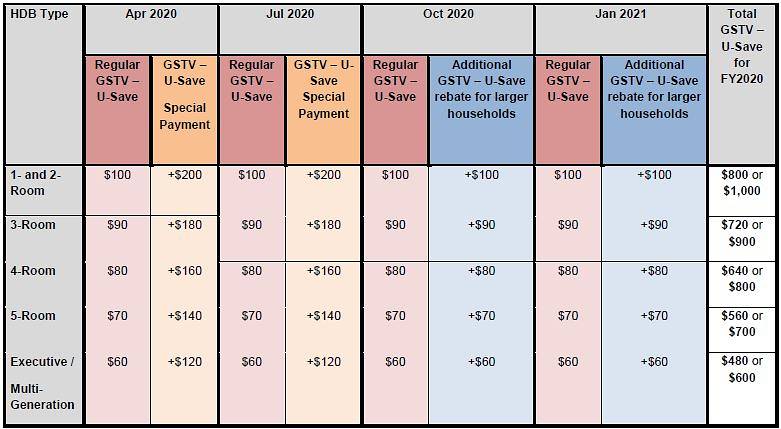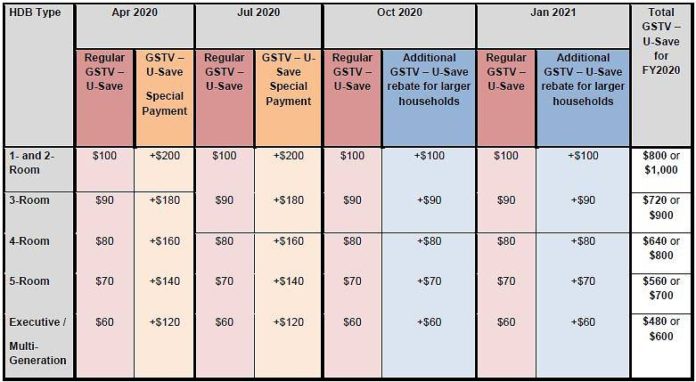SINGAPORE: About 940,000 Housing and Development Board (HDB) households will receive double their regular GST Voucher – Utilities-Save (U-Save) rebate for the financial year to help with utilities bills.
This is part of the Government’s Care and Support Package announced as part of Budget 2020 to help households with their expenses.
READ: Budget 2020: S$1.6 billion Care and Support Package to help Singaporeans with household expenses
READ: 10 things you need to know about Budget 2020
Normally, households in 1- and 2-room HDB flats get annual U-Save rebates equivalent to about three to four months of their utilities bills on average.
With the one-off doubling, they will now get rebates equivalent to at least six to eight months of utilities bills on average, said the Ministry of Finance (MOF) in a press release.
Households in 3- and 4-room HDB flats normally receive support equivalent to about one to two months of utilities bills. They will now get support equivalent to at least two to four months of their bills.
There will also be more help for bigger households later in the year. Eligible households with five or more members will get an additional voucher rebate, receiving a total of 2.5 times their regular voucher rebate in the 2020 financial year.

(Image: Ministry of Finance)
In all, this amounts to a total of S$630 million in benefits for households, said MOF.
The permanent GST Voucher scheme was introduced by the Government in Budget 2012 to help lower- and middle-income Singaporeans offset some of their GST expenses.
The voucher consists of three components – Cash, MediSave and U-Save. The GST Voucher – U-Save provides lower- and middle-income HDB households with a rebate to offset their utilities bills, and households receive their rebates every January, April, July and October.
Household members refer to individuals living at the same residence (as reflected on their NRICs), and who are related by blood, marriage or legal adoption (for example a spouse, parents, children, siblings, uncles, aunts, cousins and in-laws).
Domestic helpers, unrelated tenants, god-parents, and friends are not considered household members.





